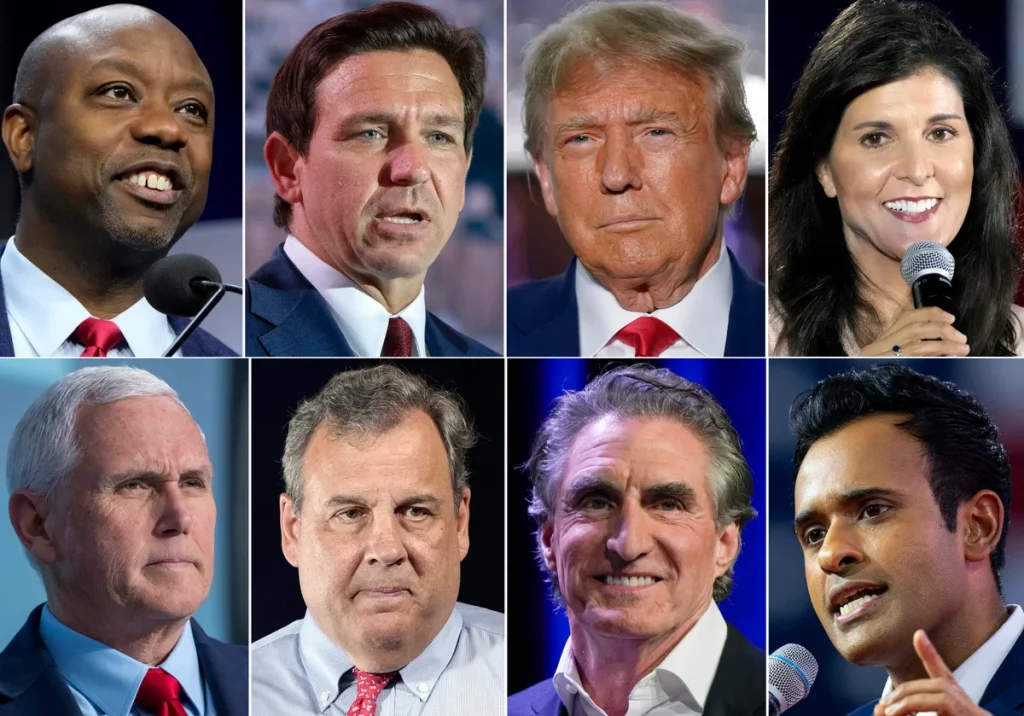CNN — At the first Republican presidential debate of the 2024 election, the eight candidates on stage in Milwaukee made a number of false and misleading claims, though none came close to the barrage of false statements that typically characterized the debate performances of former President Donald Trump, the Republican front-runner who did not attend Wednesday’s event.
South Carolina Senator Tim Scott gave a misleading assessment of the economy in early 2021 and revived an old, refuted assertion about the Justice Department under Joe Biden. When asked about the inquiry into President Obama’s son, Hunter Biden, former New Jersey governor Chris Christie flubbed the sentence tied to a gun statute. Florida Governor Ron DeSantis lied about his response to the Covid-19 pandemic by concealing the emergency measures he put in place at the outset of the outbreak.
Those statements, along with others from the debate that may have omitted necessary background, are examined here. In addition, a pre-taped interview Trump gave to Tucker Carlson was broadcast online just before the debate aired, and some of Trump’s comments from that interview are briefly fact checked below. Trump has made numerous untrue claims. While criticizing the federal government’s response to the Covid-19 pandemic, DeSantis remarked, “In Florida, we led the country out of lockdown, and we kept our state free and open.” U.S. Ambassador to the United Nations and former South Carolina governor Nikki Haley recently made the following statement: “Donald Trump added $8 trillion to our debt, and our kids are never going to forgive us for this.”
It’s important to remember, though, that no single president bears sole responsibility for the national debt growing during his or her presidency. Significant spending under any president is the result of decisions made by their predecessors such as the creation of Social Security, Medicare, and Medicaid decades ago — and circumstances out of a president’s control, most notably the global Covid-19 pandemic under Trump; the debt spiked in 2020 after Trump approved trillions in emergency pandemic relief spending that Congress had passed with overwhelming bipartisan support. However, Trump ultimately decided to green light the expenditure. His tax cuts in 2017 were a key factor in the increase in the national debt, and Democrats in Congress were united in their opposition to them.
